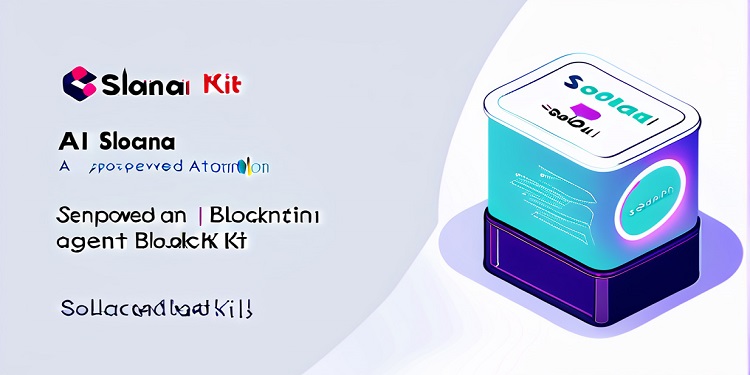Injective (INJ) has recently made a significant breakthrough by reducing its block times to an impressive 0.65 seconds, placing it among the fastest in the blockchain industry. This advancement is a major stride in blockchain technology, highlighting Injective’s dedication to enhancing speed and efficiency in the digital world. The implications of this achievement are far-reaching, affecting both users and developers and setting new benchmarks for the blockchain ecosystem.
Understanding the Impact of Faster Block Times
Block times, the intervals required to validate and record new blocks of transactions on a blockchain, are a crucial factor in determining the network’s speed and efficiency. Faster block times translate to quicker transaction processing and confirmation, a feature particularly vital for applications requiring rapid data handling. Injective’s reduction of block times to 0.65 seconds marks a significant leap from its previous performance, setting a new industry standard and enhancing its appeal to a broader audience of developers and users.
Key Metrics Driving Blockchain Performance
To grasp the full significance of Injective’s achievement, it is essential to consider the various metrics that contribute to blockchain performance. Block size, for instance, dictates the amount of data each block can contain, with larger sizes allowing more transactions per block but necessitating efficient data processing to maintain high speeds. Block time, a key focus for Injective, refers to the duration needed to add a new block to the blockchain, with shorter times leading to faster transaction processing. Finality, the time required for a transaction to be considered irreversible, also plays a crucial role; quick finality ensures that confirmed transactions cannot be altered or undone.
Injective’s performance excels in these areas, offering rapid block times, efficient transaction finality, and maintaining a high standard across all performance metrics. This comprehensive approach to enhancing blockchain performance makes Injective an increasingly attractive option for those seeking reliability and speed in their digital transactions.
The Critical Role of Latency in Blockchain Networks
Latency, or the total time from transaction initiation to full confirmation, is another vital aspect of blockchain performance. Lower latency results in a more responsive network, which is particularly important for financial applications where speed is of the essence. Injective’s reduction in block times significantly contributes to lowering latency, thereby improving the overall user experience by making the network more agile and efficient.
Beyond Throughput: A Holistic Approach to Scalability
In blockchain technology, scalability is often associated with throughput, or the number of transactions a network can handle per second. However, true scalability encompasses more than just throughput; it also includes the network’s ability to withstand attacks, adapt to new developments, and ensure long-term sustainability.
Injective’s strategy for scalability goes beyond just handling high transaction volumes. It focuses on performance, security, and adaptability, ensuring that the network can support a wide range of applications and services while meeting the growing demands of users and developers. This holistic approach underscores Injective’s commitment to long-term viability and adaptability in an ever-evolving digital landscape.
Innovative Features Driving Injective’s Success
Injective’s technological advancements are supported by several innovative features that enhance its performance and security. One of the standout features is the Frequent Batch Auctions (FBA), a system that batches transactions over specific intervals, preventing front-running and Maximum Extractable Value (MEV) attacks. By executing transactions at a uniform clearing price, FBA ensures fairness and reduces the risk of manipulation.
The network’s modular design also plays a crucial role, allowing developers to quickly integrate new functionalities. For example, the introduction of the Real-World Asset (RWA) module facilitates the seamless tokenization of real-world assets, showcasing Injective’s versatility and forward-thinking approach. Additionally, Injective leverages Tendermint’s Byzantine Fault Tolerance (BFT) consensus mechanism to achieve instant finality, meaning transactions are confirmed as irreversible immediately, adding an extra layer of reliability and security.
Widespread Benefits for the Blockchain Ecosystem
The reduction in block times brings numerous benefits to the blockchain ecosystem. For users, quicker transaction confirmations lead to a smoother and more responsive experience, particularly in financial applications where speed is critical. Developers also benefit from faster block times, as they enable quicker application deployment, accelerating innovation and the introduction of new features to the market.
Moreover, reduced latency attracts more liquidity to the network, lowers the risk of slippage, and minimizes the impact of arbitrage, making Injective more appealing for trading and financial activities. These improvements collectively enhance the network’s overall performance and its attractiveness to a wide range of users and developers.
Shaping the Future of Blockchain Technology
Injective’s achievement of reducing block times to just 0.65 seconds represents a pivotal moment in the ongoing evolution of blockchain technology. As the network continues to optimize its performance, it is expected to set even higher standards for speed and efficiency. Future upgrades will likely focus on further reducing block times and introducing additional features to maintain Injective’s competitive edge.
Injective’s advancements reflect a broader trend within the blockchain industry towards improving performance and scalability. By setting new benchmarks for speed and efficiency, Injective is playing a crucial role in driving the industry forward and contributing to the ongoing evolution of blockchain technology. As the digital landscape continues to evolve, Injective is poised to remain a key player in the development of innovative, high-performance blockchain solutions.
Conclusion
Injective’s breakthrough in achieving 0.65-second block times is not just a technical feat; it is a transformative development for the blockchain industry. This milestone underscores Injective’s commitment to pushing the boundaries of speed and efficiency, setting new standards for what blockchain technology can achieve. As Injective continues to innovate and enhance its network, it is positioned to play a leading role in shaping the future of digital finance and beyond, solidifying its status as a key player in the rapidly evolving blockchain ecosystem.









